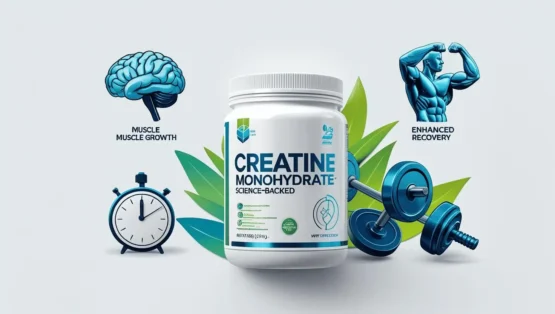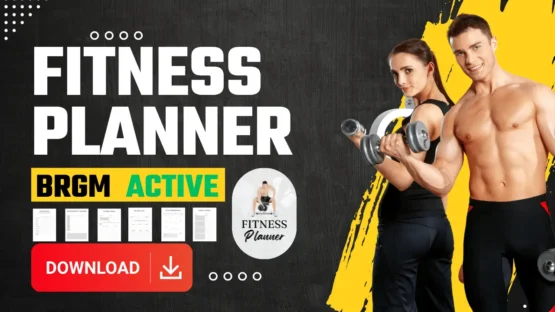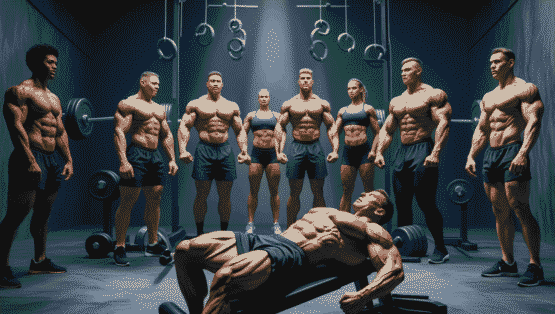- You have no items in your shopping cart
- Continue Shopping
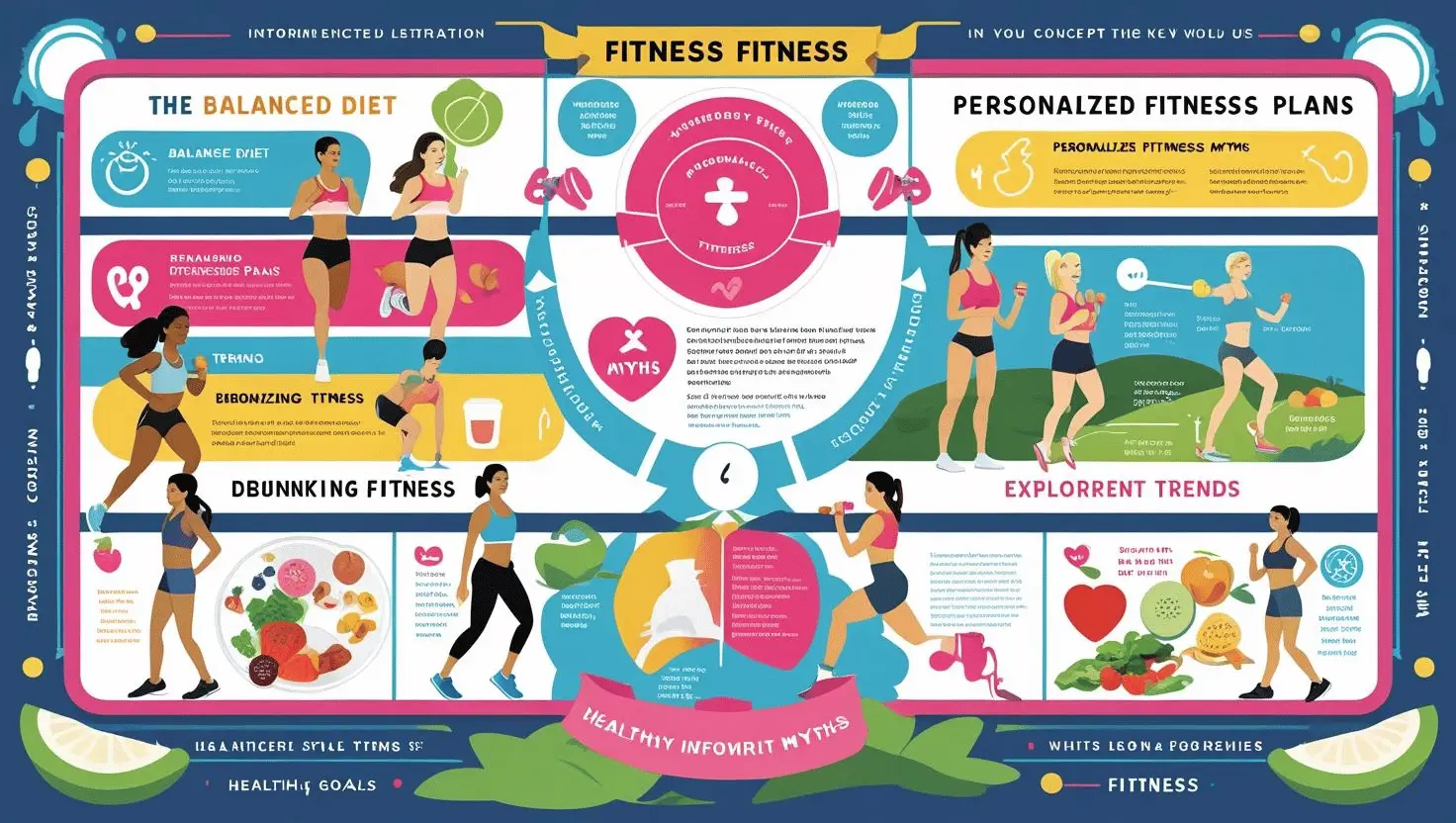
The Ultimate Review of Fitness and Nutrition
In today’s fast-paced world, the pursuit of fitness and nutrition has become more crucial than ever. With an overwhelming amount of information available, it can be challenging to discern what truly works and what doesn’t.
This review aims to provide a comprehensive overview of fitness and nutrition, highlighting essential concepts, trends, and common misconceptions that can impact your health journey.
By understanding the intricate relationship between physical activity and dietary choices, you can make informed decisions that lead to a healthier lifestyle. As we delve into the realms of fitness and nutrition, we will explore the importance of a balanced diet, the latest fitness trends, and the role of nutritional supplements.
Additionally, we will address the significance of creating a personalized fitness plan tailored to your unique needs and goals.
This review will also debunk common myths that often cloud the understanding of fitness and nutrition, equipping you with expert tips for success.
Whether you’re a fitness novice or a seasoned enthusiast, this guide will serve as a valuable resource in your quest for optimal health.
Table of Contents
Understanding Fitness and Nutrition

Fitness and nutrition are two interdependent components that play a crucial role in maintaining overall health and well-being. Fitness refers to the physical condition achieved through regular exercise, which can include activities such as strength training, cardiovascular workouts, and flexibility exercises.
On the other hand, nutrition encompasses the intake of food and beverages that provide the essential nutrients—proteins, carbohydrates, fats, vitamins, minerals, and water—necessary for the body to function optimally.
Together, these elements create a foundation for a healthy lifestyle, where proper nutrition fuels physical activity and enhances performance.
Understanding the synergy between fitness and nutrition is vital for anyone looking to improve their health. Engaging in regular physical activity not only helps in weight management but also boosts energy levels and improves mental health.
Meanwhile, a well-balanced diet supports these activities by providing the energy needed for workouts and aiding in recovery afterward.
For instance, consuming a meal rich in carbohydrates and protein post-exercise can replenish glycogen stores and repair muscle tissue. Therefore, recognizing how these two aspects complement each other is essential for achieving fitness goals and maintaining a healthy lifestyle.
The Importance of a Balanced Diet
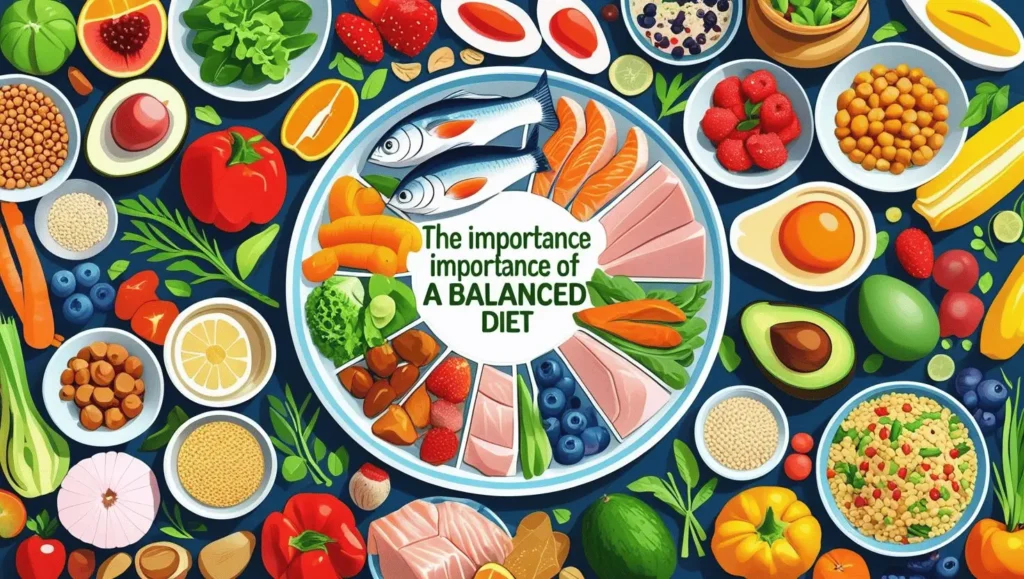
A balanced diet is crucial for maintaining optimal health and well-being.
It provides the essential nutrients your body needs to function effectively, including carbohydrates, proteins, fats, vitamins, and minerals.
These nutrients play a vital role in energy production, growth, and repair of tissues, helping to keep you strong and healthy.
Moreover, a well-rounded diet can help prevent diet-related illnesses, such as heart disease, diabetes, and obesity, which are increasingly prevalent in today’s society.
Eating a variety of foods ensures that you receive a comprehensive range of nutrients necessary for your body’s needs.
For instance, fruits and vegetables are rich in vitamins and antioxidants, while whole grains provide fiber and energy. Lean proteins, such as fish, poultry, and legumes, support muscle health and repair.
By incorporating these food groups into your daily meals, you not only enhance your physical health but also improve your mental well-being, as proper nutrition is linked to better mood and cognitive function.
Top Fitness Trends to Follow
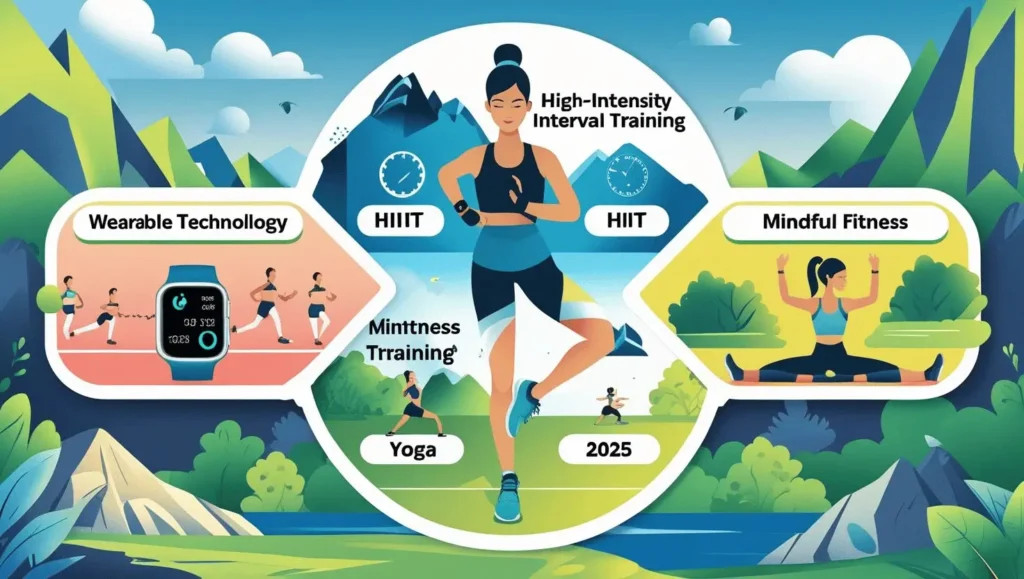
As we delve into the realm of fitness and nutrition, it’s essential to stay updated on the latest trends that can enhance your workout experience.
One of the most significant trends for 2025 is the rise of wearable technology. Devices like smartwatches and fitness trackers not only monitor your physical activity but also provide insights into your health metrics, making it easier to set and achieve fitness goals.
This trend is complemented by the increasing popularity of High-Intensity Interval Training (HIIT), which offers a time-efficient way to burn calories and improve cardiovascular health.
HIIT workouts are designed to push your limits in short bursts, making them ideal for those with busy schedules who still want to maximize their fitness results.
Another trend gaining traction is the focus on mental health through exercise. More individuals are recognizing the importance of physical activity in managing stress and anxiety, leading to a surge in classes that combine fitness with mindfulness, such as yoga and Pilates.
Additionally, outdoor activities like hiking and cycling are becoming more popular, as they not only provide a great workout but also allow individuals to connect with nature.
Group training sessions, including Bootcamp-style classes, are also on the rise, fostering a sense of community and motivation among participants. As we look ahead, these trends highlight the evolving landscape of fitness, emphasizing the importance of both physical and mental well-being.
Nutritional Supplements: Do They Work?
Nutritional supplements have become a staple in the fitness and nutrition landscape, often marketed as essential tools for enhancing athletic performance and overall health.
However, the effectiveness of these products is a topic of considerable debate. While some supplements, particularly protein powders, have shown potential benefits in aiding muscle recovery and growth, many claims surrounding other supplements lack scientific backing.
For instance, there is no conclusive evidence that supplements can significantly increase muscle size, strength, or energy levels beyond what can be achieved through a balanced diet and proper training. Moreover, the reliance on supplements can lead to a false sense of security among athletes and fitness enthusiasts.
Many individuals believe that taking these products will automatically enhance their performance, which can detract from the importance of a well-rounded diet rich in whole foods.
In fact, most athletes can meet their nutritional needs through real foods, which provide not only the necessary macronutrients but also essential vitamins and minerals that supplements may lack.
While certain supplements can indeed support specific health goals, they should never replace the foundation of a balanced diet.
Ultimately, understanding the role of nutritional supplements is crucial for anyone looking to optimize their fitness journey.
Creating a Personalized Fitness Plan
Creating a personalized fitness plan is essential for achieving your health and wellness goals.
The first step in this process is to assess your current abilities and fitness level.
This assessment will help you understand where you stand and what areas need improvement.
Once you have a clear picture of your starting point, you can define specific short- and long-term goals that align with your aspirations, whether it’s losing weight, building muscle, or enhancing endurance.
It’s crucial to set realistic and measurable objectives to keep you motivated and on track throughout your fitness journey.
After establishing your goals, the next step is to plan your workouts and create a schedule that fits your lifestyle.
This involves selecting the types of exercises you enjoy and can commit to regularly, whether it’s strength training, cardio, or flexibility workouts. Additionally, consider incorporating rest days to allow your body to recover.
A well-structured meal plan should accompany your fitness regimen, focusing on balanced nutrition that supports your energy needs and recovery.
Regularly reevaluating your goals and progress will help you stay accountable and make necessary adjustments to your plan, ensuring that it remains effective and aligned with your evolving fitness journey.
Common Myths About Fitness and Nutrition
In the realm of fitness and nutrition, misinformation can lead to misguided efforts and frustration.
One prevalent myth is that to lose weight, you must completely eliminate your favorite foods. In reality, moderation is key; you can still enjoy those treats while maintaining a healthy diet.
Another common misconception is that cardio is the only effective way to shed pounds. While cardiovascular exercise is beneficial, incorporating strength training is equally important for building muscle and boosting metabolism.
Additionally, many believe that lifting heavy weights will result in bulkiness, but this is a myth; strength training can actually help tone and define muscles without excessive size gain.
Another widespread myth is the idea that exercise can compensate for a poor diet.
The truth is, no amount of physical activity can offset the negative effects of unhealthy eating habits. Many people also fall into the trap of thinking that if they worked out, they can indulge in unhealthy foods guilt-free. This mindset can lead to a cycle of poor nutrition choices.
Furthermore, there’s a belief that stretching before lifting weights is unnecessary, but proper stretching can enhance performance and prevent injuries.
Understanding these myths is crucial for anyone looking to improve their fitness and nutrition journey, as debunking them can lead to more effective and sustainable health practices.
Expert Tips for Success
To achieve your fitness and nutrition goals, it’s essential to adopt a holistic approach that encompasses both physical activity and dietary choices.
One of the most effective strategies is to set realistic health and fitness goals.
This means understanding your current fitness level and gradually increasing the intensity of your workouts.
Personal trainers and nutrition coaches recommend creating a weekly schedule that includes dedicated exercise time, ensuring that fitness becomes a non-negotiable part of your routine.
Additionally, starting slow and allowing your body to adapt can prevent injuries and promote long-term adherence to your fitness plan.
Hydration and nutrition play pivotal roles in enhancing workout performance and recovery. Experts suggest prioritizing protein intake, as it is crucial for muscle repair and growth.
Incorporating balanced meals rich in whole foods, such as fruits, vegetables, lean proteins, and whole grains, can provide the necessary nutrients to fuel your workouts.
Timing your meals around your exercise sessions can also optimize energy levels and recovery. Lastly, staying consistent with your workout and nutrition plan, while being flexible enough to adjust as needed, will set you on the path to success in your fitness journey.
Conclusion
In conclusion, the journey towards achieving optimal fitness and nutrition is a multifaceted endeavor that requires dedication, knowledge, and a personalized approach.
As we have explored throughout this review, understanding the intricate relationship between fitness and nutrition is crucial for anyone looking to enhance their overall well-being.
By embracing a balanced diet, staying informed about the latest fitness trends, and dispelling common myths, individuals can make informed choices that align with their health goals.
Ultimately, the key to success in fitness and nutrition lies in consistency and adaptability.
It is essential to create a fitness plan that resonates with your lifestyle and preferences while ensuring that your nutritional choices support your physical activities.
Remember, there is no one-size-fits-all solution; what works for one person may not work for another. Therefore, staying open to experimentation and seeking guidance from experts can pave the way for a sustainable and fulfilling fitness journey.
Welcome to Fitness And Nutrition Books
Start Your Journey to Health & Fitness
Explore expert-backed fitness tips, nutrition guides, eBooks, and video courses tailored for your success.
Top Fitness Trends to Follow
Biggest Fitness Trends of 2025 and Worst Fads to Leave Behind
The Most Popular Workout of 2024 & 5 Trends to Watch In 2025
25 fitness trends for 2025 – Xplor Gym
What are the hottest beauty, wellness and fitness trends in the US …
17 Top Fitness Trends For 2025 – OriGym
What trends in fitness and nutrition are you most excited about?
Fitness Trends 2025: 9 Things to Keep an Eye On – Hevy Coach



